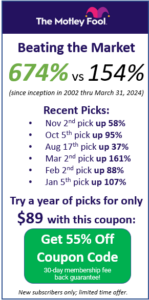Keywords – the Achilles Heel of every student’s resume. Knowing how to craft a killer resume and cover letter that grabs employers attention (and keeps it) will only help once you get your resume in the hands of a recruiter. Unfortunately, today anyone can apply to just about any job anywhere, so that great new opening you have your eye on may already have dozens, or even hundreds, of other applicants.
How can you get your resume read, let alone rise to the top of the pile?
Enter keywords – your new job search best friend. This will help you float through the resume database (the “black hole” of the application process) and make sure your resume gets read by the right people, right away.
The Resume Database

In fact, the sad truth is that your resume probably will never be read by human eyes at all.
Machine Sorting Candidates

To cope with this, systems called “Applicant Tracking Software” (ATS) have been developed. This system does two things:
- Takes all resumes and enters them into a database
- Allows the hiring managers to search, sort, and filter all applicants to narrow down the search
This means that the hiring manager is machine sorting through all the resumes to try to find candidates that push the right buttons. If your resume does not have what they are looking for, chances are that nobody will ever read it.
The Six Second Resume

By focusing in on the keywords that the hiring manager is looking for, you can make those six seconds count. Draw their eyes to what they are looking for to maximize your chances at a call back.
Keywords – Search Engine Optimization
If you want to make sure that your resume pops to the top of the research results, you will need to make sure that it is easy for the searching machine to read. The easiest way to do this is to simply make sure your resume will have the words and phrases that recruiters are searching for! You are advertising yourself with your resume, so make every word count.
Think Like Google

You want to be that #1 result when the recruiter is searching their database – think of the terms that the recruiter is most likely to be looking for, and make sure your resume features those words or phrases well.
Think Like LinkedIn

Choosing Keywords
Once you know how to think like Google and hone in on specific words, and think like LinkedIn to figure out which best apply to you, the next step is identifying which keywords each potential employer is probably searching for.
Take a look at this sample job posting found using the StockTrak Browse Jobs Tool:
Mutual of Omaha – Braintree, MA
| Requirements: - Health and Life Insurance License or the ability to obtain one prior to your start date- Obtain Series 6 and 63 or 7 and 66 within one year- Reliable transportation- Bachelors or Associates degree preferred, or experience in the industry- Appropriate legal documentation to work in the US. Attributes: - Confident- Self-motivated- Goal-oriented- Outgoing- Adaptable A national financial services and insurance company, Mutual of Omaha has been in the business for more than 100 years. With affiliates, the company manages assets in excess of $32 billion. Our advisors are responsible for providing insurance, investment products and advice to our clients. Whether you are just starting in the industry or want to further develop an existing practice, the New England Division Office is dedicated to helping you toward many years of success. |
There is a lot going on in this very short job posting, but you can very easily pick out some keywords to make sure you have featured in your resume and cover letter:
Mutual of Omaha – Braintree, MA
| Requirements: - Health and Life Insurance License or the ability to obtain one prior to your start date- Obtain Series 6 and 63 or 7 and 66 within one year- Reliable transportation- Bachelors or Associates degree preferred, or experience in the industry- Appropriate legal documentation to work in the US. Attributes: - Confident- Self-motivated- Goal-oriented- Outgoing- Adaptable. A national financial services and insurance company, Mutual of Omaha has been in the business for more than 100 years. With affiliates, the company manages assets in excess of $32 billion. Our advisors are responsible for providing insurance, investment products and advice to our clients. Whether you are just starting in the industry or want to further develop an existing practice, the New England Division Office is dedicated to helping you toward many years of success. |
We have two tiers of keywords highlighted:
Orange words are ones that are easy to spot, but not very likely that the hiring manager will be searching for. These are the “Low hanging fruit”.
Green words are the important ones – key job requirements that the hiring manager is going to look for specifically. These are the “High value keywords”.
High Value Keywords

- Health Insurance License
- Life Insurance License
- Series 6
- Series 63
- Series 7
- Series 66
You will want to make sure your resume contains 2 or 3 of these at the minimum, in prominent positions that are easy to spot at a glance.
Low Hanging Fruit

The trick with low hanging fruit is not to over-do it. Pepper in one or two of these keywords, but if you hit on all of them (or too many too quickly), your resume can come off as disingenuous .
Customizing Your Resume
You probably already have a killer resume you’ve written. Your biggest mistake now is using the same one to apply for every job.
Once you have your keywords in mind, it is time to start customizing your resume for the job you are applying for. If you are a student just graduating from school, this can be tricky. Always keep in mind that you should only apply for jobs you are qualified for. If you are qualified, fitting in the keywords should not be a stretch.
Your Objective Statement
Your objective statement, the short sentence or paragraph at the top of your resume, is a great place to pepper in one or two of the “low hanging fruit” keywords. This helps set the tone for the rest of the page.
Qualifications Area
Your qualifications area is the best place to drop in any high-value keywords that apply to you. For example, if you are still in school, some of these phrases could apply:
- Passed Series 7 Prep Course
- On track for Life Insurance License
- Completed Health Insurance License coursework
Avoid Fluff

Remember: the recruiter will only look at your resume for about six seconds. If your resume cannot be easily digested, the recruiter will most likely miss anything that was not at the forefront. Make sure they see what they are looking for as soon as they look at the page.

 smithjjj5’s September Trading Strategy
smithjjj5’s September Trading Strategy
